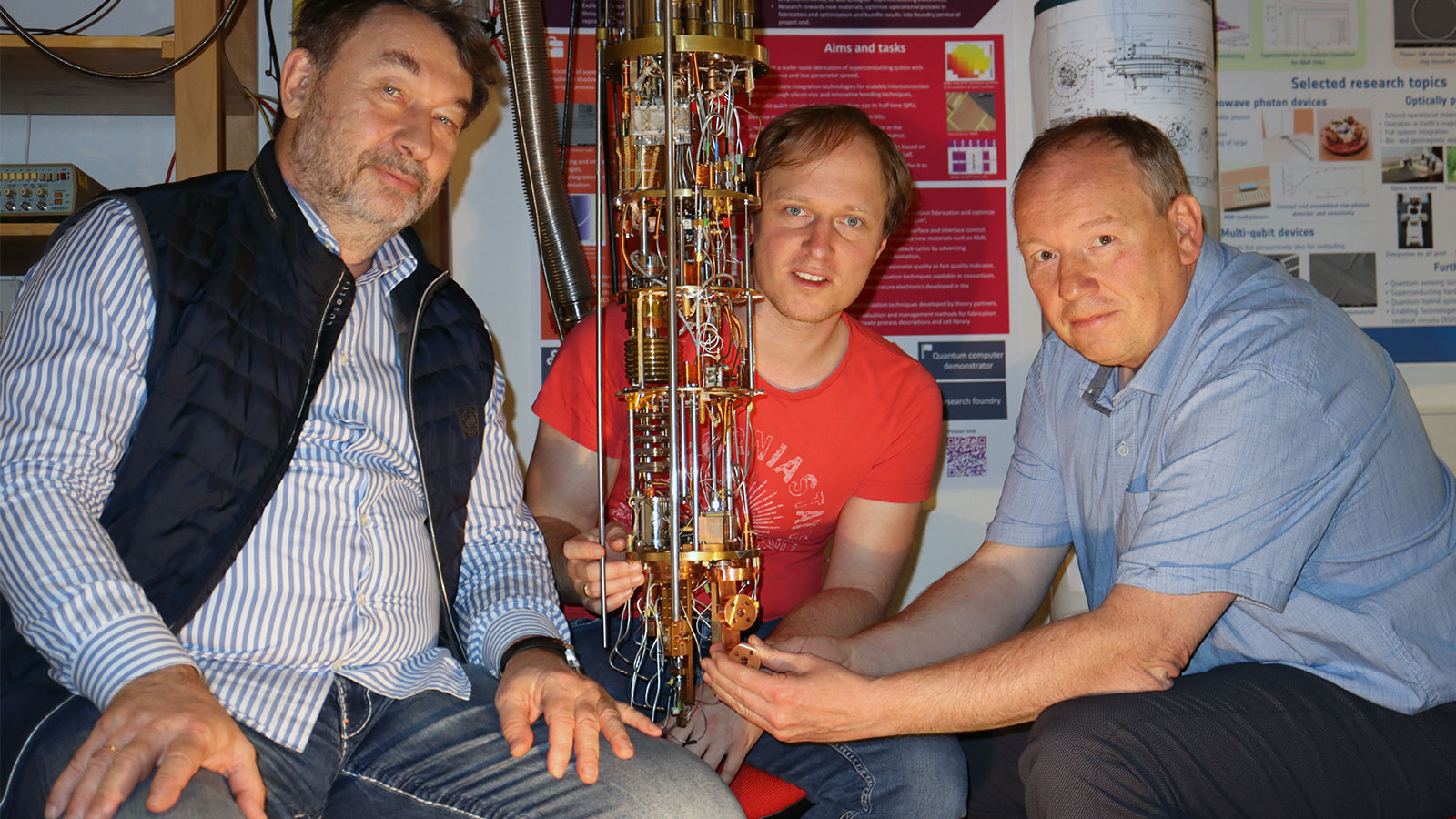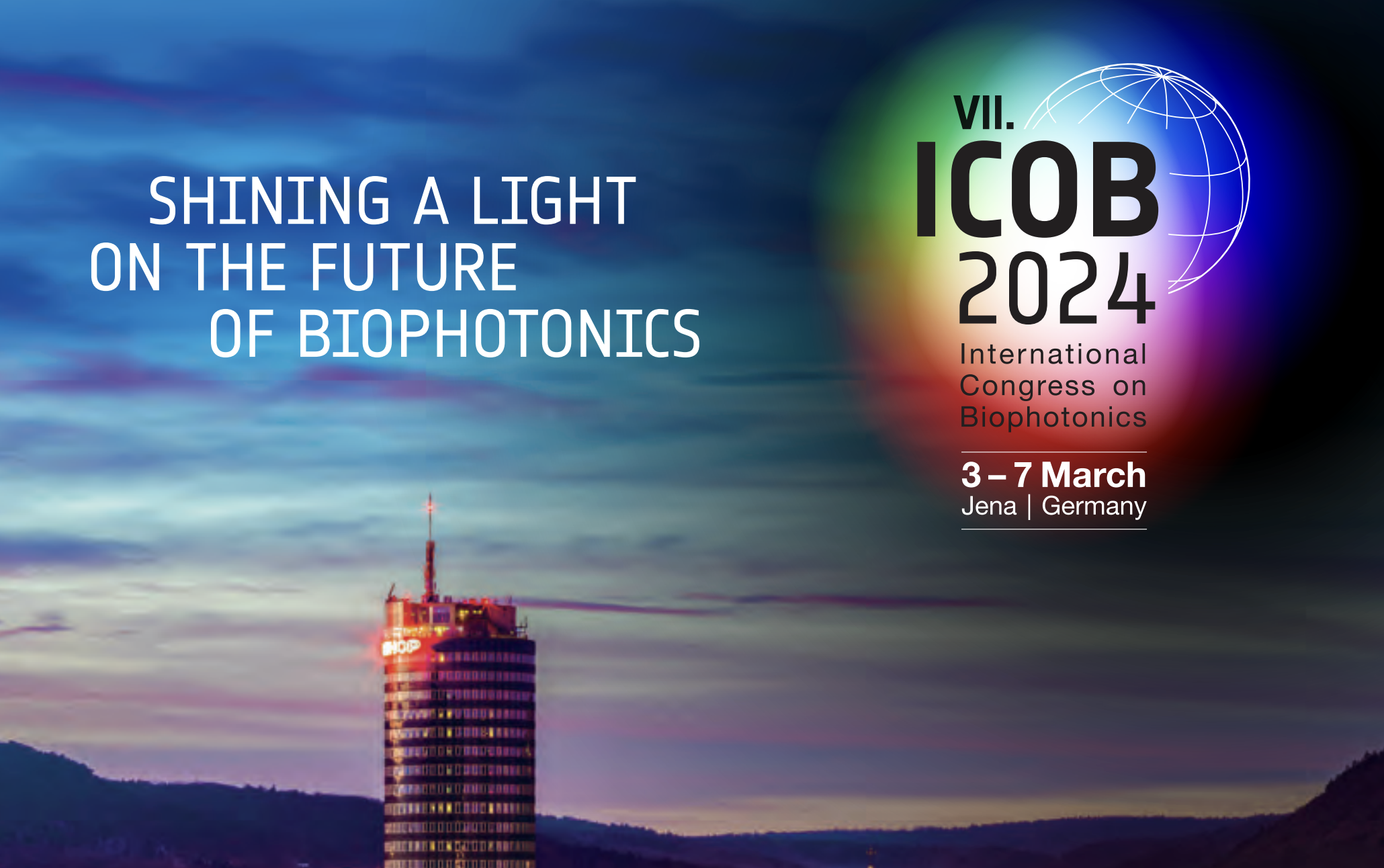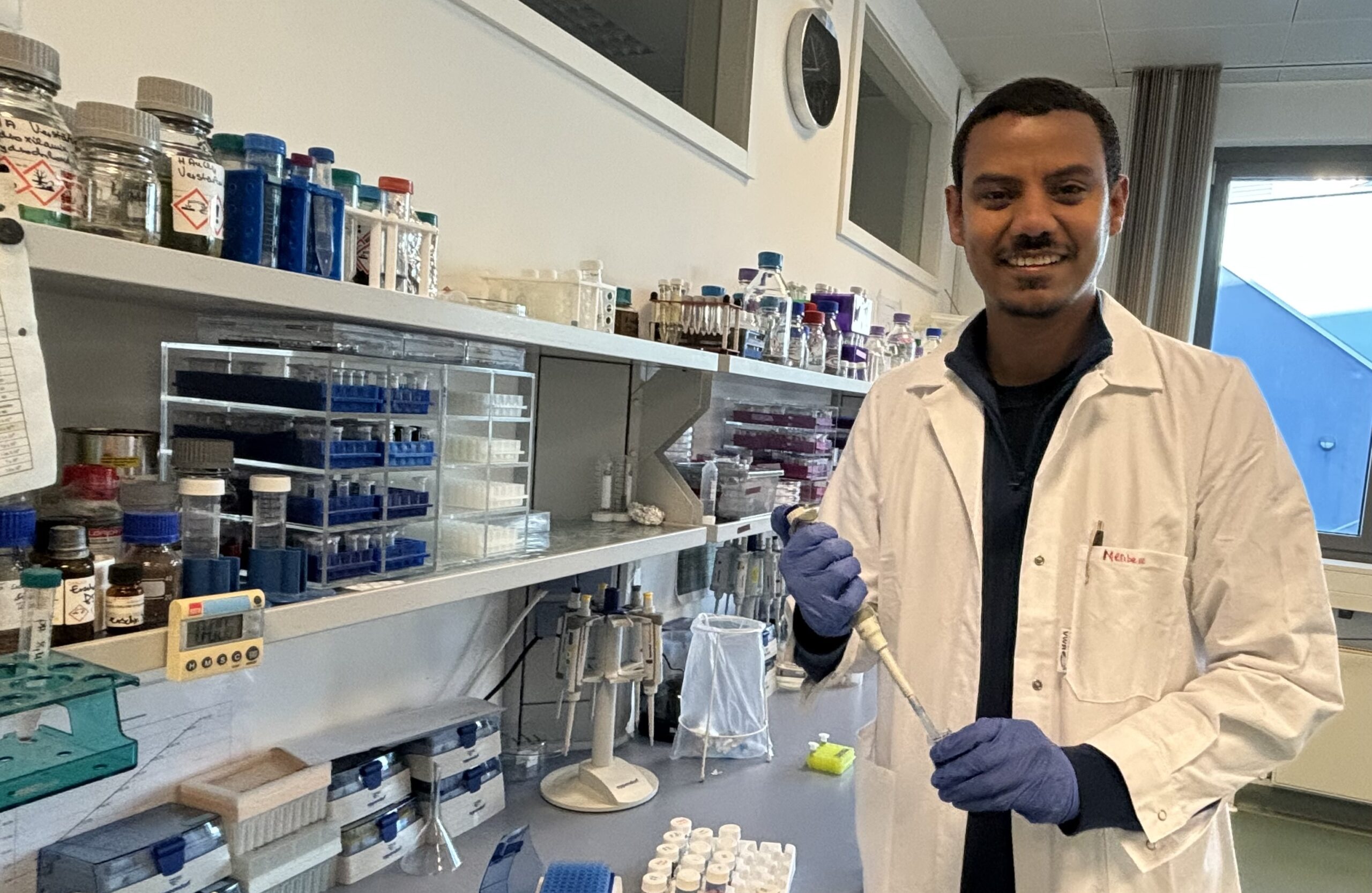Leibniz IPHT works on the first German quantum computer as part of the collaborative project QSolid

Building a complete quantum computer based on cutting-edge German technology is the goal of the five-year QSolid collaborative project, 89.8 % of which are funded by the German Federal Ministry of Education and Research. The quantum computer to be developed will contain several next-generation superconducting quantum processors and will significantly exceed the computing power of today’s supercomputers for specific tasks. Core expertise and initial circuits also come from Thuringia: The Leibniz Institute of Photonic Technology (Leibniz IPHT) is contributing its many years of experience in the production and characterization of superconducting circuits to the project and will help to advance the realization of significantly more powerful quantum computers by developing new fabrication processes.
Quantum computers promise breakthroughs in material research and drug development and in optimizing traffic management solutions and could vastly exceed the capabilities of conventional supercomputers for specific tasks. Therefore, 25 leading German companies and research institutions have joined forces in the collaborative project QSolid (quantum computer in the solid state) to develop a demonstrator of a quantum computer based on superconducting quantum bits (qubits). The aim is to develop a system containing various quantum processors based on next-generation superconducting circuits with reduced error rates.
The collaborative project is supported by Leibniz IPHT in Jena. The institute not only has decades of experience in researching, designing, and characterizing superconducting quantum circuits, especially qubits, but also has an existing production line for superconducting circuits. This is to be expanded into a pilot line for superconducting quantum circuits.
“As part of the project, we will optimize our existing and established processes and research and develop new scalable manufacturing and characterization processes to produce high-quality and precise superconducting circuits for the quantum computer of the future,” explains Dr. Ronny Stolz, head of the Quantum Systems Department at Leibniz IPHT. At the institute in Jena, the scientists will realize the key elements and circuit components on which the quantum computer is based. “These range from central elements of the quantum processing unit (QPU) and amplifiers for reading out the qubit states to circuits for control and signal routing,” explains Dr. Gregor Oelsner, head of the Quantum Circuits Working Group in the Quantum Systems Department and subproject leader of QSolid at Leibniz IPHT. In addition, novel superconducting materials and material concepts for circuit elements are being researched and developed to enable improved properties and functionalities.
The quantum computer to be realized in the collaborative project QSolid with advanced technology from Germany is to be based on improved and extremely robust quantum circuits. “The optimizations we have in mind start with next-generation superconducting circuits with a particularly low error rate, which we plan to achieve using high-precision manufacturing methods and new material systems, for example,” explains project coordinator Prof. Frank Wilhelm-Mauch from Forschungszentrum Jülich. With the support of the Jena researchers, important steps are being taken to achieve this goal.
The first prototypes of the planned demonstrators in the QSolid project are expected in 2024 and will be based on core components produced at Leibniz IPHT. The production of superconducting quantum circuits will be made available to companies in Germany and Europe as a foundry service after completion of the project.
Collaborative project QSolid
In the five-year collaborative project with total funding of 76.3 million euros and 89.8% BMBF funding, 25 German research institutions and companies are working on an error-improved quantum computer. The research consortium is the largest of its kind in Germany and is coordinated by Forschungszentrum Jülich. The resulting quantum computer demonstrator will be made accessible to external users via the Jülich quantum computing infrastructure JUNIQ (Jülich UNified Infrastructure for Quantum computing) and tailored to their needs. www.q-solid.de
In the picture:
Researchers at Leibniz IPHT prepare the mK measurement platform for first use in QSolid.


